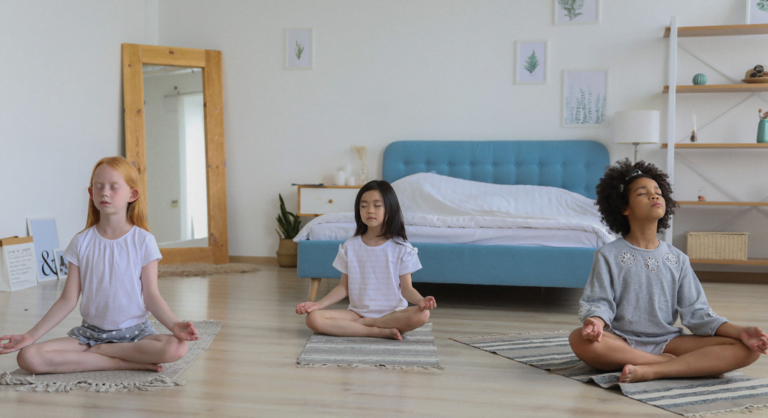In today’s hyper-connected world, the idea of finding yourself through alone time may sound a tad unconventional, even disconcerting. Yet, it is through solitude that we often stumble upon our most profound discoveries about ourselves.
The constant chatter of the modern world, with its relentless flow of information and ceaseless digital distractions, can often drown out our inner voice. It is only when we disconnect and tune into our inner thoughts and feelings, that we can truly connect with ourselves.
Spending time in solitude offers us a valuable opportunity to reflect, introspect, and gain deeper insights into our life’s purpose, our dreams, and our aspirations. It’s a chance to reset, to sift through the noise of everyday life, and reconnect with our authentic selves.
So, next time you feel overwhelmed or disconnected, consider stepping away from the clamor of the world for a little while. You might be surprised by what you discover.
The Importance of Alone Time
Alone time, often interchangeably referred to as solitude, is a state of being alone without being lonely. It’s a conscious and intentional choice to spend time with oneself, disconnected from the external world’s demands and distractions. This time can be utilized for reflection, creativity, self-discovery, or even just relaxation – a personal retreat from the world.
The benefits of solitude are significant and multifaceted. From a psychological standpoint, solitude can enhance self-awareness, foster emotional resilience, and enable us to better regulate our emotions. It can facilitate creativity and innovation, as the quietness often sparks new ideas and perspectives. It also serves as a platform for self-care, allowing us to rejuvenate mentally and physically.
Solitude can strengthen our relationships with others, as spending time alone strengthens self-understanding, leading to better communication and empathy. Therefore, embracing solitude is an investment not only in your personal well-being but also in the quality of your interactions with others.
The Challenge of Finding Alone Time
The Busyness of Modern Life
Finding time for solitude can be a significant challenge, especially in today’s fast-paced world. The busyness of modern life, with its constant stream of obligations and distractions, often leaves little room for moments of quiet introspection.
We’re perpetually connected, glued to our screens, and caught up in the whirlwind of work, social engagements, family commitments, and an endless to-do list. This constant busyness and hyper-connectivity can make it difficult to carve out alone time.
It’s easy to feel as though we’re on a never-ending treadmill, with no opportunity to pause, reflect, and simply be with ourselves. However, the key to overcoming this challenge lies in prioritizing solitude as a necessary aspect of self-care and personal growth, and deliberately making space for it amidst the chaos of daily life.
Social Pressures and Expectations
Social pressures and societal expectations can further complicate our quest for solitude. In many cultures, constant engagement and busyness are often equated with productivity and success, and spending time alone can be misinterpreted as a sign of loneliness or antisocial behavior.
This societal bias towards constant connectivity can create a sense of guilt or fear surrounding the pursuit of solitude, making us hesitant to set boundaries and carve out time for ourselves.
The proliferation of social media platforms only intensifies this pressure, promoting a culture of comparison and creating the illusion that everyone else is always doing something exciting or meaningful. This can trigger the fear of missing out (FOMO) and lead us to overcommit ourselves socially, further eroding our personal time.
Overcoming these social pressures and expectations requires a paradigm shift in our understanding of solitude, recognizing it not as an act of isolation, but as a mindful practice that fosters self-discovery and personal growth.
Technological Distractions
Technology can be another major obstacle preventing us from finding alone time. From smartphones to tablets, and from social media to digital entertainment, we are constantly bombarded with digital distractions. These devices and platforms, while beneficial in many ways, can create a constant stream of stimulation that makes it difficult for us to disconnect and truly spend time with ourselves.
The omnipresence of technology can lead to a state of chronic distraction, where we’re constantly switching from one task to another without taking the time to reflect or recharge. This incessant digital noise not only robs us of our solitude but can also have a detrimental effect on our mental health, leading to increased stress and anxiety levels.
The addictive nature of these digital platforms can make it challenging to set boundaries for our technology use. We can find ourselves aimlessly scrolling through social media or binge-watching streaming services, losing precious hours that could have been dedicated to self-reflection and personal growth.
To overcome these technological distractions and reclaim our alone time, it’s important to establish healthy digital habits. This could involve setting specific times of the day for unplugging, using app limiters, or creating tech-free zones in our homes. By doing so, we can create a balance between our digital and personal lives, paving the way for meaningful alone time and the opportunity to rediscover ourselves.
Rediscovering Yourself Through Solitude
Embracing Solitude
Embracing solitude is an art. It requires a conscious and intentional shift in mindset and habits. One of the most effective ways to begin is by setting aside specific times for solitude in your daily schedule. These moments can be early in the morning before the hustle of the day, or late at night when all is calm.
Creating a peaceful and comfortable space that invites introspection is another critical step. It could be a quiet room in your home, a serene garden, or even a peaceful corner in a local park. The environment should be one where you feel at ease and free from distractions.
Activities that promote mindfulness such as meditation, yoga, or even simple breathing exercises can be incorporated into your solitude routine. These practices help to quiet the mind, allowing for deeper self-reflection and connection with your inner self.
Reading and journaling are also excellent tools for embracing solitude. Reading helps to broaden your perspective and stimulate your thinking, while journaling offers a platform for expressing your thoughts and feelings, aiding in self-discovery.
Lastly, remember that solitude is not about isolation, but about taking time for self-nurturing and self-understanding. So, be patient with yourself during this journey. The process of embracing solitude and finding yourself may take time, but the benefits are well worth the effort.
Unplugging from Technology
Unplugging from technology can seem like a daunting task in this digital age. However, it is an integral part of finding yourself through alone time. Here are a few suggestions:
- Digital Detox: Dedicate specific times during your day when you disconnect from all digital devices. This could be during your meals, during your solitude time, or a few hours before bed.
- Nature Walks: Taking walks in nature can be a great way to disconnect. Leave your phone at home and immerse yourself in the beauty of your surroundings. This can help you develop a deeper connection with yourself and the world around you.
- Non-digital Hobbies: Cultivate hobbies that don’t require technology. This could include reading physical books, painting, gardening, or practicing a musical instrument.
- Mindful Consumption of Media: Be mindful of how much time you spend consuming digital media. Limit your use of social media and news consumption to specific times and durations during your day.
The ultimate goal is not to completely eradicate technology from your life, but to create a balanced relationship with it. It’s about restoring control over your digital life, so your devices don’t control you. With time and practice, unplugging will become second nature, and you’ll discover that solitude can indeed be a source of joy and self-discovery.
Engaging in Mindful Activities
Engaging in mindful activities is another effective strategy for rediscovering yourself through alone time. Here are some practices you could try:
- Meditation: The practice of meditation promotes mindfulness by encouraging a focus on the present moment. Starting with just a few minutes each day can help create a sense of peace and clarity.
- Yoga: Yoga not only benefits the body but also the mind. The concentration required for different postures and the connection between movement and breath induce a state of mindfulness.
- Journaling: Writing your thoughts and feelings down is a powerful way to become more aware of your internal state. It gives you a chance to express your thoughts without judgment or interruption.
- Mindful Eating: This involves paying full attention to the experience of eating, savoring each bite, and acknowledging what you like and don’t like about the food. It can alter your relationship with food and promote a healthy diet.
- Observing Nature: Spend time observing the natural world, whether that’s watching birds from your window or going for a walk in a local park. This can help you feel connected to the larger universe and foster a sense of peace and tranquility.
Mindfulness is not about achieving a certain state but rather about being present with whatever comes up. It can help to set aside a designated quiet time each day for these activities, allowing you to delve deeper into your thoughts and feelings. As you continue these practices, you’ll likely find that they not only bring a sense of calm but also foster self-awareness and personal growth.
Overcoming the Fear of Being Alone
Addressing Loneliness
It’s important to recognize that feeling lonely or uncomfortable in solitude is common and completely natural. Here are a few strategies that can help you navigate through these feelings:
- Self-reflection: Use this time to explore the origin of your feelings. Ask yourself, “Why do I feel lonely when I’m alone?” The answers can provide insight into your emotions, helping you work through them.
- Connect With Others: While solitude is beneficial, it’s equally important to maintain social connections. Reach out to friends or family, join online communities or participate in social activities that you enjoy.
- Find a Hobby: Discover activities that you genuinely love, providing you with a sense of purpose and enjoyment when alone. This could be anything from painting, reading, gardening, or learning a new instrument.
- Positive Affirmations: Remind yourself of your worth and the value of your own company. Affirmations like “I enjoy my own company” or “I am enough on my own” can help change your mindset about being alone.
- Seek Professional Help: If feelings of loneliness persist, consider seeking support from a professional. Therapists or counselors can provide you with effective coping strategies and a safe space to express your feelings.
Embracing solitude is a journey, and it’s okay to take small steps. With time, patience, and practice, you can find comfort in your own company and truly discover the benefits of finding yourself through alone time.
Nurturing Self-Compassion
Nurturing self-compassion is an integral part of rediscovering oneself through solitude. It involves treating oneself with kindness, understanding, and forgiveness, much like how we would treat a friend in distress. Here are a few strategies for cultivating self-compassion:
- Mindfulness: A cornerstone of self-compassion, mindfulness encourages us to be present and aware of our thoughts, feelings, and experiences without judgment or criticism. It’s about acknowledging and accepting our imperfections as a part of human experience.
- Positive Self-talk: Try to replace self-critical thoughts with compassionate ones. Instead of focusing on your flaws and failures, recognize your worth and celebrate your achievements, no matter how small.
- Self-care: Regularly taking time out to look after your physical, emotional, and mental health, doing things you love, can reinforce feelings of self-love and self-compassion.
- Gratitude Journal: Keeping a gratitude journal can cultivate positive feelings towards oneself. By writing down what you’re grateful for, you can shift your focus to the positive aspects of your life.
Self-compassion is a process; be patient with yourself. Over time, these practices can help you develop a healthier and more compassionate relationship with yourself, enhancing your journey of finding yourself through alone time.
Building a Support System
While solitude can be an enlightening journey of self-discovery, it’s equally important to build a reliable support system. A robust support network can provide a safe space to share experiences, seek advice, or gain different perspectives. Here are some strategies to consider:
- Connect with Likeminded People: Joining clubs or groups that share your interests can be a great way to connect with people who understand and share your passions. This can make it easier to form meaningful connections.
- Stay in Touch with Loved Ones: Regular communication with family and friends helps reinforce relationships, providing a dependable emotional buffer. Remember, it’s not about the quantity but the quality of these connections.
- Seek Professional Help: Therapists, counselors, or life coaches can provide valuable guidance and help navigate challenging aspects of your self-discovery journey.
- Join Online Communities: Online platforms offer vast resources and communities for virtually any interest or challenge you might be facing. They can provide camaraderie, shared experiences, advice, and support from people across the globe.
- Volunteer: Volunteering can foster a sense of belonging and purpose and provide opportunities to connect with a diverse group of people.
It’s okay to lean on others. Building a support system doesn’t negate your journey of self-discovery through solitude; instead, it enhances it by providing a safety net of support and understanding.
Balancing Alone Time with Social Interaction
The Importance of Balance
Finding the right balance between alone time and social interaction is crucial in the journey of self-discovery. Alone time gives you the space to introspect, reflect, and truly get to know your desires, dreams, and fears.
It’s a time to nourish your soul and mind, to understand your values and what truly matters to you. However, humans are inherently social creatures and social interactions provide us with perspectives differing from our own, enriching our worldview. These interactions can stimulate our thinking, challenge our beliefs, and help us grow.
Finding a balance between the solitude needed for introspection and the social interaction required for perspective is of paramount importance in the journey of finding oneself. Remember, neither extreme—total isolation or constant socialization—fosters a healthy process of self-discovery. Instead, a balance that feels right to you is the key.
Setting Boundaries
Establishing boundaries is an essential step in achieving a healthy balance between solitude and social interactions. These boundaries ensure that you allocate ample time to both introspection and social engagement without one aspect overshadowing the other.
Setting boundaries can entail a variety of measures such as designating certain times of the day for solitude, or having specific “quiet periods” where you allow yourself the space for deep thought and self-reflection. Similarly, you might also set aside time each week for social activities, to ensure you’re nurturing your relationships and exposing yourself to new ideas and perspectives.
These boundaries should not be rigid, but rather flexible enough to accommodate your changing needs and circumstances. Remember, the goal of setting boundaries is to enhance your journey of self-discovery, not to stifle it. Establishing and respecting these boundaries will help you find yourself through alone time, while also valuing the growth and enrichment that comes from social interaction.
Making Time for Quality Social Interactions
Achieving self-discovery through solitude doesn’t mean eliminating social interactions entirely from your life. On the contrary, these interactions play a crucial role in your journey to self-discovery. Quality social interactions provide opportunities for mental stimulation, emotional support, and a breadth of experiences and perspectives that enhance our understanding of ourselves and the world around us.
Making time for quality social interactions involves being intentional about the relationships you nurture and the social activities you engage in. Spend time with individuals who inspire positivity, foster growth, and respect your boundaries. Engage in activities that align with your interests and values, as these will not only provide enjoyment but also deepen your understanding of yourself.
Remember, the key is to make these social interactions meaningful – engagements that contribute positively to your journey of self-discovery. This balance of solitude and social interaction can aid in finding yourself through alone time, emphasizing the importance of not only understanding ourselves in isolation but also in relation to others.
Tips for Incorporating Alone Time into Your Life
Scheduling Alone Time
Scheduling alone time may seem like a paradox, given that solitude is often viewed as a spontaneous retreat from the hustle and bustle of daily life. However, consciously making room for solitude in your routine can be an effective strategy for fostering self-discovery.
Start by setting aside specific time slots dedicated to solitude. This could be as simple as waking up an hour earlier to enjoy the quiet of the morning, allocating a part of your lunch break to a solitary walk, or designating an evening each week for personal reflection. Be realistic about the time you can afford and remember that the quality of your alone time matters more than the quantity.
During this time, engage in activities that help you reflect and connect with your inner self. This could involve journaling, reading, meditation, or simply sitting in contemplation. Be consistent with your solitude schedule, as this regular practice can gradually lead to profound insights about yourself.
Like any other commitment, prioritize this time and treat it with respect. Remember, finding yourself through alone time is a journey, and scheduling regular intervals of solitude is an integral part of this journey.
Creating a Sanctuary at Home
Creating a sanctuary at home is another essential step towards finding yourself through alone time. This sanctuary will serve as a sacred space where you can retreat from the world and find solace in your solitude. It doesn’t need to be a whole room – just a small private corner where you feel comfortable and at peace.
Start by choosing a space that is free from distractions. This could be a quiet room, a part of your garden, or even a cozy corner of your living room. Furnish it with items that create a soothing ambiance, like comforting cushions, scented candles, or calming artworks.
The key is to personalize this space in a way that resonates with your unique tastes and needs. Fill it with objects that inspire you or evoke positive emotions, such as favorite books, travel mementos, or cherished photographs.
Ensure the space is clean and organized, as a clutter-free environment can help foster clarity of thought. Finally, establish a “no interruption” rule while you’re in your sanctuary, reinforcing its role as your haven of solitude. This sanctuary at home will serve as a tangible representation of your commitment to discovering yourself through alone time, thus making it easier to cultivate this essential practice regularly.
Exploring New Interests and Hobbies
Exploring new interests and hobbies is a wonderful way to make the most of your alone time and further along the path of rediscovering yourself. When you engage in activities that you genuinely enjoy or have a curiosity about, you may uncover aspects of yourself that you previously weren’t aware of, fueling your journey of self-discovery. It could be painting, reading, gardening, or even learning a new musical instrument; the options are endless.
The aim is not to become an expert but to enjoy the process and discover more about yourself along the way. Do not rush or pressurize yourself. Allow your hobbies to evolve naturally, and be open to experimentation. You might be surprised to find that a hobby you had never considered before brings you immense joy and satisfaction. Embrace the journey of exploring new interests and hobbies, as it is a vital component of finding yourself through alone time.
Conclusion
Finding yourself through alone time is a journey of self-discovery that is deeply personal and enriching. The creation of a personal sanctuary at home, a space that is truly your own, filled with things that inspire and evoke positivity, can undoubtedly enhance this journey. It is important to honor this space by ensuring it is free from interruptions, allowing you to immerse in solitude fully.
Exploring new interests and hobbies can reveal unknown facets of your personality and bring you immense joy. Remember, the goal isn’t to master an activity but to enjoy the process and learn more about yourself. It’s about following your curiosity, experimenting, and embracing the surprises along the way.
Embrace solitude and cherish the alone time you have. It’s a powerful tool for self-discovery, a time to rediscover your interests, and an opportunity to understand yourself better. This journey may not always be easy, but the rewards it yields in terms of self-understanding and personal growth are well worth it. Embrace the solitude, it’s where you’ll find yourself.








